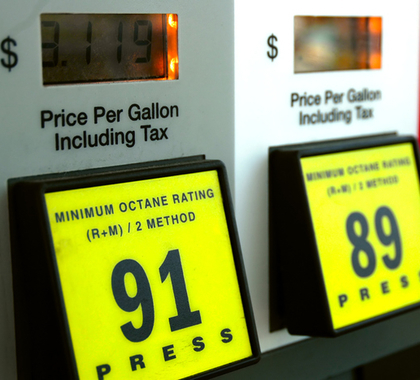Chairwoman Howell and Members of the Committee,
Thank you for holding a hearing on Senate Bill 6001. This legislation would ultimately limit increases in fuel taxes to no greater than two percent over the previous year’s United States Average Consumer Price Index (CPI).
Further, adjusting fuel tax rates and eliminating motor fuel tax entirely from May 1 to July 31, 2022 is a much needed emergency measure to create some reprieve for Virginia constituents at a time when the national average for a gallon of gas is at its highest since 2014.
Historically, gasoline taxes have inherently been unreliable sources of funding when it comes to state roads, maintenance, and other transportation infrastructure projects. This is partially attributable to the rise of more fuel-efficient vehicles. According to The Electric Vehicle World Sales Database, sales of electric vehicles have been consistently increasing since 2011. If states begin to follow in the footsteps of California Gov. Gavin Newsom, we are likely to see more phasing-out of gasoline-powered cars in the future.
In 2015, Daniel Vock, writing for Governing, examined state gasoline tax data reported to the U.S. Census Bureau and discovered two-thirds of state-imposed fuel taxes failed to keep state transportation budgets afloat amid inflation. Moreover, the COVID-19 pandemic has added an unforeseen layer to the complexities and shortcomings of using gasoline taxes to subsidize state-run transportation programs and projects.
The stark decline in driving that accompanied lockdown orders drastically reduced gasoline tax revenue for state and local governments, highlighting the fact that gas taxes are no longer consistent sources for state infrastructure and transportation funding. According to the American Road and Transportation Builders Association, more than $8.5 billion in planned projects across 14 states were canceled or delayed because of budgetary shortcomings due to the COVID-19 pandemic.
Additionally, fuel taxes are highly regressive and carry with them myriad economic consequences, including creating new direct-to-consumer costs. As a function of corporate finance, large-scale corporations and transit entities will see their usual budget allocation for fuel fall short with increasing prices, resulting in higher prices on goods and services.
As is the case with many top-down taxes, an increase in gasoline taxes will hit small business owners harder at a time when they simply cannot afford it. According to Wallethub, 87 percent of small business owners are struggling due to the ongoing pandemic.
In a Maryland Public Policy Institute study, Wendell Cox and Ronald Utt argue that gas taxes have a significantly greater negative effect on the budget of lower- and middle-income families than they do for wealthier households. Gasoline consumption is inelastic for most Americans, meaning those who are already marginally able to pay their bills face an increased financial burden due to an increase in fuel taxes.
Moreover, the revenue from fuel taxes is not always allocated to transportation upgrades. The latest example of this took place in Pennsylvania, where gas tax revenue intended to fund bridge repairs went to the state police instead. The Keystone State saw $802 million in gas tax revenue allocated toward police funding. While police funding is paramount to a safe society, there is no way for constituents to be sure that gas tax funding goes towards the betterment of state transportation infrastructure.
Furthermore, as more electric and fuel-efficient vehicles enter the market, policymakers must consider more modern and effective ways to fund road construction and other state transportation infrastructure projects. Such is why many states have turned to privatizing roads and establishing toll systems as ways to improve their roadways.
Amid a time when U.S. inflation has hit a 39-year high, U.S. gasoline prices have climbed 58 percent over the past year, according to The Wall Street Journal. There could not be a more ill-timed proposal to levy higher taxes on Virginia consumers who are currently paying an average of $3.944 per gallon for regular-grade gasoline, as compared to $2.705 one year ago, according to AAA Gas Prices.
Overall, as you consider SB 6001, I would implore you to see the evident benefits of capping ultimately unreliable gas tax increases while simultaneously providing relief to citizens of the Old Dominion during a time of intense economic pressure.
Thank you for your time today.
Nothing in this testimony is intended to influence the passage of legislation, and it does not necessarily represent the views of The Heartland Institute. For further information on this and other topics, The Heartland Institute’s website provides a great link to many policy resources.
The Heartland Institute can send an expert to your state to testify or brief your caucus; host an event in your state or send you further information on a topic. Please don’t hesitate to contact us if we can be of assistance. If you have any questions or comments, contact Heartland’s government relations department, at [email protected] or 312/377-4000.




